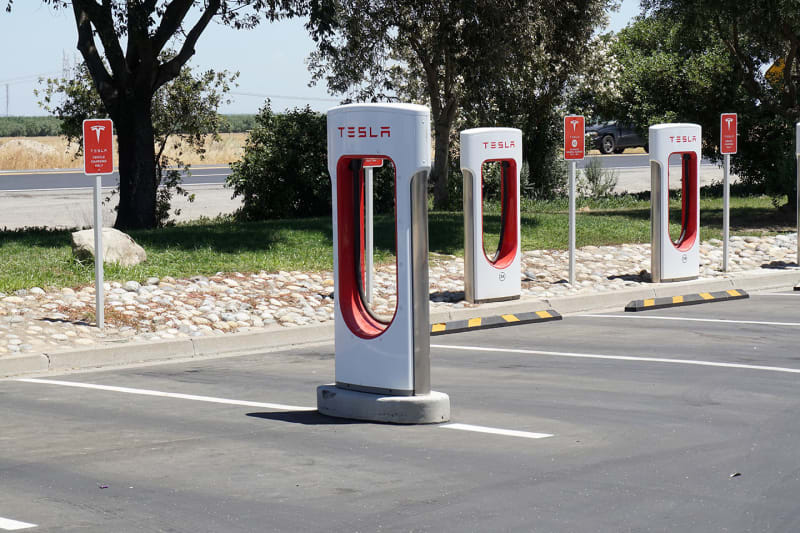Can lithium batteries power all cars in America? The answer may be “Yes,” but we must change direction if we are to have any chance. Based on recent history, after the coronavirus pandemic is over, US new car sales will return to about 17.5 million units per year. When we get to a first year for all-electric car production, how much lithium will be needed? A lithium ion battery contains 0.3 grams of lithium per amp-hour of battery capacity, or about 0.09 kg of lithium per kilowatt-hour (kWh)
Lithium mines measure their output in kilograms of lithium carbonate. In terms of mine output, it takes 0.96 kg of lithium carbonate per kWh of battery capacity. Assume each car has an average battery capacity of 60 kWh. Multiplying by 17.5 million cars, the amount of lithium mine output needed will be 1.0 million metric tonnes of lithium carbonate for each year of new EVs
In 2020, total world mine output of lithium carbonate is projected to be about 0.7 million metric tonnes. The world is now scrambling to find more lithium. There are more problems:
• US auto sales are only about 22% of vehicle sales worldwide.
• Power companies are aggressively purchasing Lithium batteries for the grid.
Some say that science can solve the problem—"another, even better battery will be found that may not even need lithium.” Well, no, that isn’t the situation. No other element carries as much charge for its weight as does ionized lithium and the lithium ion cell produces a prodigious 3.7 volts. Current batteries obtain about 85% of the theoretical limit of energy storage for their lithium content. Future improvements will only be in battery structure, weight, and charging speed.
CONCLUSION: Power companies don’t need light-weight batteries—they MUST use something else! America must vastly increase domestic mining and processing of lithium and other strategic materials such as cobalt, nickel, aluminum, and rare earth metals needed for an electrified economy. Plus we can learn to be more thrifty. The auto industry can make more efficient electric vehicles that need only half as much battery capacity.
Lithium mines measure their output in kilograms of lithium carbonate. In terms of mine output, it takes 0.96 kg of lithium carbonate per kWh of battery capacity. Assume each car has an average battery capacity of 60 kWh. Multiplying by 17.5 million cars, the amount of lithium mine output needed will be 1.0 million metric tonnes of lithium carbonate for each year of new EVs
In 2020, total world mine output of lithium carbonate is projected to be about 0.7 million metric tonnes. The world is now scrambling to find more lithium. There are more problems:
• US auto sales are only about 22% of vehicle sales worldwide.
• Power companies are aggressively purchasing Lithium batteries for the grid.
Some say that science can solve the problem—"another, even better battery will be found that may not even need lithium.” Well, no, that isn’t the situation. No other element carries as much charge for its weight as does ionized lithium and the lithium ion cell produces a prodigious 3.7 volts. Current batteries obtain about 85% of the theoretical limit of energy storage for their lithium content. Future improvements will only be in battery structure, weight, and charging speed.
CONCLUSION: Power companies don’t need light-weight batteries—they MUST use something else! America must vastly increase domestic mining and processing of lithium and other strategic materials such as cobalt, nickel, aluminum, and rare earth metals needed for an electrified economy. Plus we can learn to be more thrifty. The auto industry can make more efficient electric vehicles that need only half as much battery capacity.


![[hairpull3] [hairpull3] [hairpull3]](/data/assets/smilies/hairpull3.gif)
![[curse] [curse] [curse]](/data/assets/smilies/curse.gif)
![[flame] [flame] [flame]](/data/assets/smilies/flame.gif)
![[banghead] [banghead] [banghead]](/data/assets/smilies/banghead.gif)
